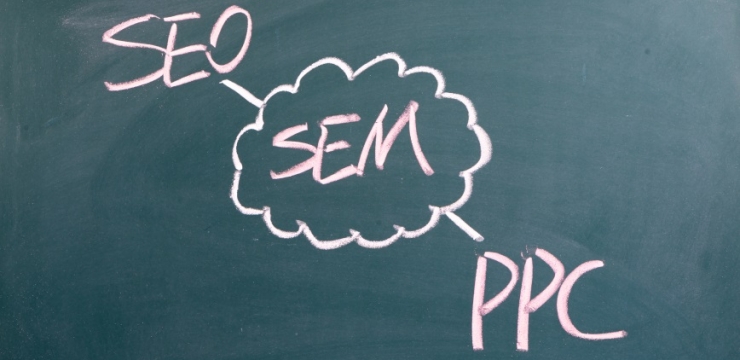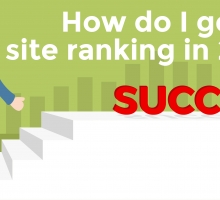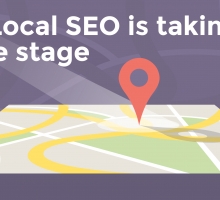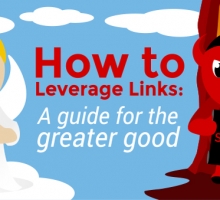The conundrum
One of the key things businesses like about search is its measurability. Whether you choose paid or organic search or a combination of both, it is possible to set clear KPIs and measure your return on investment in terms of traffic and resulting revenue. That said, in an evolving search landscape hit by penalties and algorithms, some businesses may find themselves drawn more to paid search and its ultra-visible equation of X£ in ad spend=X amount of traffic ≈ £sales.
Here at High Impact, we don’t believe it should be a choice between one online marketing method and another, particularly not when it comes to search. And, while we acknowledge it can be harder as a CEO to focus on a search method that’s not an exact equation, we’re going to run through why SEO is just as sound and as measurable an investment as paid search.
The case for standalone organic search
You may have already come across the much-quoted stat that reveals organic results are 8.5 times more likely to be clicked on by internet users compared to paid search results. It’s a little snippet of information from a content agency that was revealed in a Moz article some time ago and you can read more about the original research here. The takeaway point is that while it might take a while for your organic campaign to make an impact as the effects of fresh, relevant content and links come into play, when rankings are achieved that position in the SERPs will unlock a far larger number of potential customers than paid ad spend.
Separate research from Chikita ads published in 2013 shows that 33 per cent of traffic goes to the top ranked site and then there are smaller slices of traffic distributed to those sites nestling underneath. When you decide to invest in organic search your SEO agency is highly unlikely to be able to tell you that you need to spend X amount of money to reach a top position or X amount of links or month’s of work to secure you that ranking and I’d be wary of anyone who does. However, there are some givens that you can take into account – most of our clients see significant improvements in search visibility by month six of a campaign thanks to technical corrections and content strategy.
Once ranking, if you work within Google’s guidelines and maintain your site and SEO in a way that’s helpful to the user and continually works towards improvement, you should enjoy consistent performance levels in the search results. You will need to continue to invest in order to maintain results but this means that the money you put into SEO is always an investment in the true sense of the word, whereas paid search advertising and its benefits are turned on and off.
It’s also worth remembering that organic search is not all about rankings – there are many other benefits to the threads that make up a successful organic search campaign. Content created to support your organic search – from category pages through to blog posts and buying guides – benefits your users. Links built can drive traffic and increase brand awareness, particularly when content marketing is driving those links. And let’s not forget there are people behind those links, so for everyone built there’s a new relationship being nurtured on your behalf. Relationships with bloggers, publications and audiences equate to more people familiar with your brand, products and services. This is something that paid search can’t offer. Yes, some forms of ads can increase brand awareness and in among relevant audiences – with ads being placed on relevant blogs, for example. But paid search doesn’t expand your digital footprint, it doesn’t tell the story of your brand and it doesn’t use techniques that promote loyalty.
Yes, it’s a little more difficult to put figures on things up front now, thanks to changes like ‘not provided’, but there is still sufficient analytics information available to make informed and successful targeting decisions and to analyse the results too. Rankings translate to sales, which can be measured against investment for great visibility and continue to have a positive impact over time. Organic search doesn’t just target one particular customer at a particular time – it runs all year round and helps maximise the number of relevant visitors to your site, so that you don’t miss out on sales. It can also be implemented alongside other online marketing methods like social media and content marketing to give seasonal or time sensitive pushes and it fits alongside these techniques a lot more snugly than paid search.
While SEO can largely be considered a long-term tactic it is not without the possiblility of short term wins; there are still instances where keyword research will uncover unexploited terms that can bring successes quickly.
The case for standalone paid
With paid search, you don’t need to worry about algorithm updates or ‘not provided’, you’re able to test your ads and calculate ROI from the off and it doesn’t take months to see impact from a campaign. Yes, you have to earn the quality score that leads to cheaper clicks, but if you’re an unknown company trying to establish market share or entering new territories, PPC or other paid search platforms can be a great way to grab traffic. Organic results do get a bigger slice of that traffic, but Google has been edging away at their advantages; eating into the natural heat map of where user’s eyes fall with more prominent PPC ads.
You can split-test your landing pages without risking your traffic taking a dive, without the need to create reams of content, though you’re likely to find you build trust with the user better if you work on your site content to. Most importantly, you can take targeting to new levels. From pushing particular products at specific times through to setting the exact demographic of who you want to target, when, paid search allows for a lot of control. Noticed a celebrity has worn a particular dress or the weather is looking spectacular on the South East coast next week? PPC can take advantage of these real-time trends through advertising. Of course, there’s nothing stopping some outreach and content creation helping you tap into the same trend, but in terms of driving traffic in this context paid search will have a more instant impact.
Then there’s remarketing, where paid search is supercharged with advantages like knowing that a customer is definitely interested in a product and when they are likely to want to buy it.
On paper, paid search can seem like a safer investment but it not without it’s downsides; stop your PPC campaign and your visibility could disappear without a trace and fail to block competitors IP addresses and you could find yourself at risk of a little espionage (and wasting considerable sums on a campaign where the maths all added up perfectly when you made the decision to spend).
SEO and PPC can and should exist in harmony
We don’t really believe it should be a Vs situation when it comes to organic and paid search. There are in fact a number of ways these types of search can be used to support and complement each other; paid search can provide an interim traffic provider while you build your organic efforts and the data collected can be incorporated into your organic campaigns. Details from your organic search campaigns can be incorporated into remarketing and if you want to maximise exposure, there’s no reason why you can’t use both with the aim of dominating the first page results.




